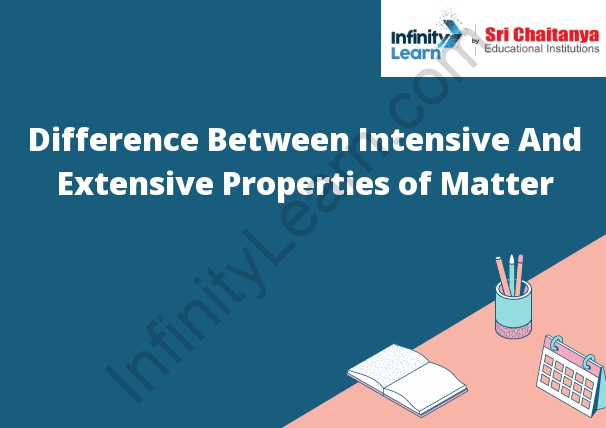Table of Contents
Difference between Intensive and Extensive Properties of Matter
Intensive properties of matter are those that remain the same regardless of the amount of the substance present. These include density, boiling point, and melting point.
Extensive properties of matter, on the other hand, vary depending on the amount of the substance present. These include mass, volume, and energy.

What is an Intensive Property?
Intensive properties are those that do not depend on the size of the system. They are determined by the nature of the system and are independent of the system’s size. Intensive properties include temperature, pressure, and density.
Intensive Property Examples
There are a few different types of intensive properties, but they all relate to the amount of matter in a given space. For example, density is an intensive property because it doesn’t depend on the amount of space the matter occupies. The density of a substance is the same no matter how much or how little of it is present.
Another intensive property is specific gravity, which is the ratio of the density of a substance to the density of water. This property is also independent of the amount of space the matter occupies.
What is an Extensive Property?
An extensive property is a physical or chemical property that is a measure of the amount of a substance in a given sample. Extensive properties are always additive, meaning that the total value of the property is the sum of the individual values for each component in the sample.
Extensive Property Examples
Differences between Extensive and Intensive Properties
Extensive properties are those that depend on the amount of matter in a system. For example, the amount of heat energy in a system is an extensive property.
Intensive properties are those that do not depend on the amount of matter in a system. For example, the temperature of a system is an intensive property.
How to Differentiate between Intensive and Extensive Properties?
Intensive properties are those that are independent of the size of the system, while extensive properties are those that depend on the size of the system. For example, the temperature of a system is an intensive property, while the mass of a system is an extensive property.
Other Examples of Properties
Some other examples of properties are:
-The color of an object
-The weight of an object
-The size of an object
-The temperature of an object









